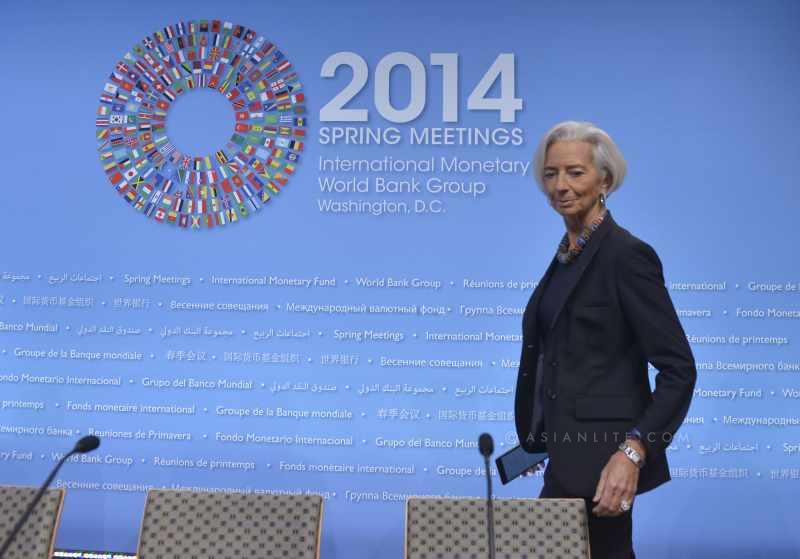International Monetary Fund (IMF) chief Christine Lagarde said Thursday that the global economy was at an inflection point with weaker than expected recovery momentum, as he called for bolder policies and multilateral efforts to inject new impetus.

Speaking at the IMF-World Bank annual meeting in Georgetown University, Lagarde said the global economy was weaker than envisaged and only a modest pickup was foreseen for 2015, as the outlook for potential growth had been pared down, Xinhua reported.
Among advanced economies, the rebound was expected to be strongest in the US and Britain; modest in Japan; and weakest in the Euro area, the managing director of the IMF noted.
Emerging market and developing economies led by Asia and China will continue to drive global activity, however, to be at a slower pace than before, she said.
“Six years after the financial crisis began, we see continued weakness in the global economy,” she added.
She pointed out that there was a cloud hovering around asynchronous monetary policy normalisation in advanced economies and its potential spillovers to other countries around the world, urging the Federal Reserve to clearly communicate with the market over the exit from the monetary easing.
She also underlined the rising geographical tensions posing risks to the global economy, as a possible further escalation of the situation in Ukraine could provoke disruptions in commodity prices, financial markets and trade. An expansion of the Ebola outbreak in Africa could pose a significant risk to the region and indeed the world, if not urgently and appropriately addressed.
“That brings me to the ‘structural reforms’ that are so essential to raise productivity, competitiveness and employment,” she said.
The Washington-based organisation is expected to lower its projection of global economic growth for 2014 in its latest edition of World Economic Outlook next week.
The IMF-World Bank annual meeting is scheduled to be held Oct 10-12 in Washington.